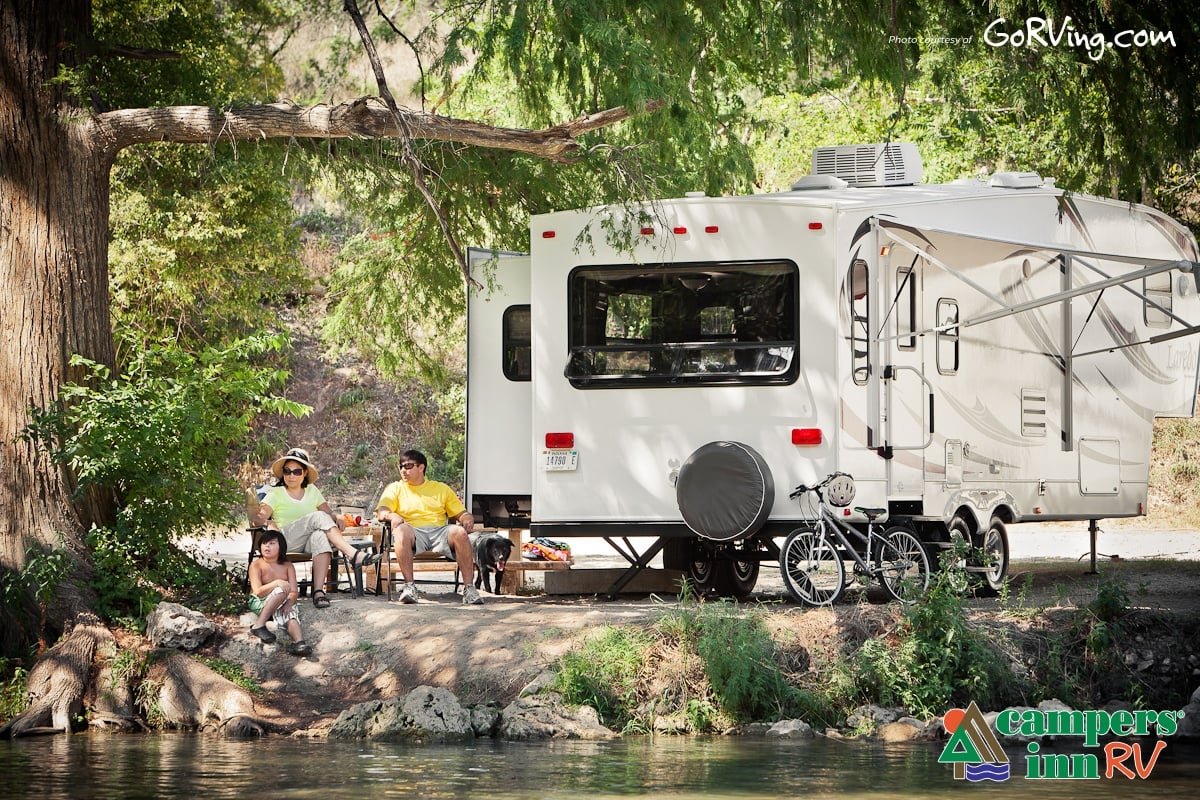Living in an RV full-time represents ultimate freedom for many, but it also triggers deep-seated anxieties that can prevent people from pursuing this lifestyle. Prospective full-time RVers often wrestle with concerns about losing personal space, possessions, and the comfort of familiar routines. Fear becomes the primary barrier between dreaming about RV life and actually hitting the road, with most people struggling to distinguish between staying safe and staying comfortable.
The transition to full-time RVing forces individuals to confront fundamental questions about what they truly need versus what they think they need. Many find themselves paralyzed by uncertainty about downsizing possessions, living in confined spaces with family members, and managing the unpredictable nature of life on the road. These fears are universal experiences shared by nearly everyone who has considered this lifestyle change.
Understanding these common concerns helps potential RVers make informed decisions about whether full-time RV living aligns with their goals and temperament. The fears surrounding space limitations, material possessions, comfort zones, control, and social approval represent normal human responses to major life changes. Addressing these anxieties directly allows people to move forward with confidence or recognize that alternative lifestyle choices might better suit their current needs.
Biggest Fears Full-Time RVers Face Before Starting Out
Prospective full-time RVers consistently worry about financial security, safety concerns, mechanical failures, and the practicalities of daily life on the road. These anxieties often center around emergency situations and the ability to keep your rig running reliably.
Financial Stability and Unexpected Costs
Money concerns top the list of biggest fears for aspiring full-time RVers. Many people worry about maintaining steady income while traveling constantly.
Income Generation Challenges:
- Finding reliable remote work opportunities
- Maintaining client relationships while mobile
- Dealing with inconsistent internet connectivity
- Managing seasonal employment fluctuations
Emergency expenses create significant anxiety for new RVers. Unexpected repair bills can range from hundreds to thousands of dollars. Engine problems, transmission failures, or roof damage can quickly drain savings accounts.
Common Emergency Costs:
| Repair Type | Typical Cost Range |
|---|---|
| Engine repairs | $2,000 – $8,000 |
| Transmission work | $1,500 – $4,000 |
| Roof replacement | $3,000 – $6,000 |
| Slide-out repairs | $800 – $2,500 |
Healthcare costs while traveling present another financial concern. Insurance coverage varies by state, and finding quality medical care in remote areas can be expensive.
Safety and Security Concerns
Personal safety ranks among the top 5 fears for full-time RVers, especially those traveling solo or with families. Concerns about crime in unfamiliar locations create significant anxiety.
Primary Security Worries:
- Theft of RV or personal belongings
- Break-ins while sleeping or away from the rig
- Encountering dangerous individuals at remote campsites
- Getting stranded in unsafe areas
Women traveling alone face heightened safety concerns. They worry about camping in isolated locations and dealing with mechanical issues without assistance.
Weather-related dangers also create fear. Severe storms, flooding, or extreme temperatures can threaten both personal safety and RV integrity.
Many experienced RVers recommend researching campground reviews and trusting instincts about locations. Installing security systems and traveling in groups can reduce safety risks.
Fear of Mechanical Breakdowns
Mechanical failures represent one of the most practical fears in full-time RVing. Unlike homeowners who can call local service providers, RVers must navigate repairs while traveling.
Common Breakdown Scenarios:
- Tire blowouts on remote highways
- Engine overheating in desert conditions
- Electrical system failures
- Plumbing and water system problems
Finding qualified repair shops creates additional stress. Not all mechanics understand RV systems, and specialized parts may take weeks to order.
Learning basic maintenance skills helps keep your rig running reliably. Many RVers invest time in understanding their electrical, plumbing, and mechanical systems before departing.
Essential Maintenance Knowledge:
- Checking tire pressure and condition
- Monitoring fluid levels
- Understanding electrical connections
- Basic plumbing repairs
Emergency roadside assistance becomes crucial for full-time RVers. Services like Good Sam or Coach-Net provide specialized RV support nationwide.
Uncertainty About Day-to-Day Logistics
Daily life logistics create anxiety for people accustomed to established routines. Questions about mail delivery, banking, and basic services worry prospective RVers.
Logistical Concerns:
- Receiving mail and packages while traveling
- Finding reliable internet for work and communication
- Locating grocery stores and essential services
- Managing laundry and household tasks
Domicile establishment confuses many new RVers. Choosing a legal residence state affects taxes, voting, and insurance rates. States like South Dakota, Texas, and Florida offer advantages for full-time travelers.
Internet connectivity concerns grow as remote work becomes essential. RVers need backup plans for staying connected in areas with poor cellular coverage.
Water and waste management require careful planning. Understanding dump station locations and water quality helps maintain comfort and health on the road.
Mail forwarding services solve address concerns, but packages and time-sensitive documents need special handling. Many RVers use services that scan mail and forward only important items.
Lifestyle Adjustments and Emotional Challenges
The transition to full-time RV life requires significant personal adaptations that extend far beyond the physical aspects of downsizing. These emotional hurdles can be more challenging than mechanical issues or budget constraints.
Letting Go of Possessions and Embracing Minimalism
Most future RVers face the daunting task of reducing their belongings by 80-90% before hitting the road. This process involves more than simple decluttering—it requires a fundamental shift in how they define security and comfort.
Common emotional responses include:
- Anxiety about losing sentimental items
- Fear of making wrong decisions about what to keep
- Guilt over wasting money on previously purchased items
The attachment to possessions often represents deeper concerns about identity and stability. Many people discover their belongings have become psychological anchors that provide a sense of control and familiarity.
Those who successfully embrace minimalism typically focus on functionality over sentimentality. They learn to distinguish between items that truly add value to their RV lifestyle versus those that merely provide emotional comfort.
Storage units offer a middle ground for those not ready to completely let go. However, ongoing storage costs can strain RV budgets and may delay the psychological benefits of true downsizing.
Dealing With Emotional and Social Uncertainty
Living full-time in an RV creates emotional challenges that many newcomers underestimate. The constant change of scenery and lack of routine can be emotionally draining for some individuals.
Social isolation becomes a significant concern when leaving established community connections behind. RVers often struggle with the fluid nature of road friendships, where meaningful connections may be brief and geographically scattered.
Key emotional adjustments include:
- Accepting uncertainty as part of daily life
- Developing resilience when plans change unexpectedly
- Finding new ways to maintain mental health without traditional support systems
Weather dependency adds another layer of emotional stress. RVers must constantly monitor conditions and adjust plans accordingly, which can create anxiety for those who prefer predictable schedules.
The lack of personal space in smaller RVs can intensify existing personality conflicts. Couples and families often discover relationship dynamics they never recognized in traditional housing situations.
Transitioning to Life on the Road
The first few months of RV lifestyle typically involve a steep learning curve that tests emotional resilience. New RVers must simultaneously master mechanical systems, navigation, campground protocols, and budget management.
Essential transition challenges:
- Establishing new daily routines in constantly changing environments
- Learning to live with less privacy and personal space
- Adapting to shared facilities at campgrounds
- Managing work responsibilities while traveling
Sleep quality often suffers initially due to unfamiliar sounds, different bed configurations, and varying noise levels at different locations. This can compound stress during an already challenging adjustment period.
Many RVers experience decision fatigue from constantly choosing routes, campsites, and daily activities. The freedom that initially attracts people to RV life can become overwhelming without proper coping strategies.
Impact on Relationships and Support Systems
Full-time RV life places unprecedented stress on relationships between travel companions. The confined space eliminates many escape mechanisms that people use in traditional homes to manage interpersonal tensions.
Relationship stressors specific to RV living:
- Limited privacy for individual activities or conversations
- Shared responsibility for mechanical and maintenance issues
- Financial pressures from unexpected repairs or extended travel
- Different comfort levels with uncertainty and spontaneous changes
Maintaining relationships with stationary friends and family requires deliberate effort and planning. Many RVers report feeling disconnected from their previous social circles, especially during major life events they cannot attend.
Professional relationships may also suffer if work requires reliable internet or specific equipment. The constant movement can make it difficult to maintain consistent communication with colleagues and clients.
Successful full-time RVers develop new communication patterns and conflict resolution skills. They learn to address issues immediately rather than avoiding them, since there’s limited space to maintain distance during disagreements.
Planning, Preparedness, and Navigating the Unknown
Successful full-time RVing requires strategic planning across three critical areas: mapping routes with backup options, preparing for weather emergencies and mechanical failures, and securing reliable camping spots during peak seasons.
Route Planning and Logistics
Route planning extends far beyond selecting destinations on a map. RVers must consider vehicle restrictions, including bridge heights, weight limits, and tunnel clearances that standard GPS systems often ignore.
Specialized RV GPS units and apps like RV LIFE or Good Sam provide routing tailored to specific RV dimensions. These tools help avoid low bridges, narrow roads, and weight-restricted routes that could strand travelers.
Fuel planning becomes critical with larger rigs averaging 6-10 miles per gallon. RVers should identify fuel stops every 200-250 miles, accounting for stations with adequate maneuvering space for big rigs.
Weather patterns significantly impact route selection. Winter travelers must avoid mountain passes prone to closures, while summer RVers should plan around extreme heat in desert regions.
Smart logistics include researching grocery stores, pharmacies, and repair facilities along planned routes. Many RVers maintain digital folders with contact information for mobile mechanics and RV service centers in each region.
Dealing With Bad Weather and Emergencies
Emergency preparedness separates confident RVers from anxious ones. Essential preparations include maintaining emergency supplies for at least 72 hours without external support.
Weather monitoring becomes a daily routine. RVers use weather apps, NOAA radio alerts, and local news to track approaching storms. High winds pose the greatest immediate threat to RVs, with sustained winds over 25 mph making driving dangerous.
Emergency kits should contain first aid supplies, flashlights, extra batteries, non-perishable food, and water. Many RVers install weather radios and carry satellite communicators for areas with poor cell coverage.
Mechanical breakdowns require different preparation strategies. Roadside assistance through Good Sam or AAA provides peace of mind, though response times in remote areas can exceed 4-6 hours.
Backup plans prove invaluable when primary routes become impassable. Experienced RVers maintain alternate routes and emergency contact lists for each travel region.
Finding Suitable Campgrounds and RV Parks
Campground research prevents arrival disappointments and ensures adequate facilities. Reservation systems like Recreation.gov for national and state parks often require bookings 5-6 months in advance for popular destinations.
Private RV parks offer more amenities but vary significantly in quality and price. Resources like Campendium, RV LIFE, and Good Sam provide user reviews and detailed facility information.
National and state parks typically offer scenic locations with basic hookups, while private parks provide full amenities including WiFi, laundry, and recreational facilities. Camping World locations often allow overnight parking for customers.
Peak season availability becomes challenging in popular destinations. Summer months in national parks and winter months in southern states require advance planning and flexible dates.
Many RVers develop relationships with quality parks for return visits. Properties like Sheldon Lake RV offer consistent service standards that reduce uncertainty when planning extended stays.
Membership programs through Thousand Trails, KOA, or Good Sam can reduce costs for frequent travelers while providing predictable accommodations across multiple locations.
Overcoming Fears and Embracing Full-Time RV Living
Moving past common RV living anxieties requires connecting with experienced communities, maintaining adaptability, and building practical skills through gradual exposure to RV life.
Getting Advice From Experienced RVers
Connecting with seasoned full-time RVers provides invaluable insights that can address specific concerns before making the transition. Online communities, RV forums, and social media groups offer direct access to people who have navigated similar challenges.
Many experienced RVers share practical solutions for space limitations, mechanical issues, and lifestyle adjustments. They often provide real-world examples of how they overcame initial fears about downsizing or living in smaller spaces.
RV shows and rallies present opportunities to speak face-to-face with full-timers. These events allow prospective RVers to tour different RV models and ask detailed questions about daily life on the road.
Local RV dealerships like Sheldon Lake RV often host educational seminars where experienced customers share their stories. These sessions cover topics from choosing the right RV size to managing utilities and maintenance.
Helpful resources include:
- RV lifestyle blogs and YouTube channels
- Regional RV clubs and meetups
- Manufacturer-sponsored owner groups
- Campground host programs that offer mentorship
Developing a Flexible Mindset
Successful full-time RV living requires adapting to changing circumstances and unexpected situations. Weather delays, mechanical problems, and campground availability issues become manageable with flexible planning approaches.
New RVers benefit from creating backup plans for common scenarios. This includes identifying alternative routes, maintaining lists of backup campgrounds, and developing problem-solving strategies for equipment failures.
Mental preparation involves accepting that fulltime RV life differs significantly from traditional housing. Space constraints require creative storage solutions and simplified daily routines.
Flexibility extends to social situations and community interactions. RV parks have varying rules and atmospheres that require adaptation. Some RVers find success by embracing these differences rather than expecting consistency.
Building tolerance for uncertainty helps reduce anxiety about the unknown aspects of life on the road. This mindset shift often proves essential for those preparing to go full-time.
Building Confidence for RV Life
Gradual exposure to RV systems and travel routines builds practical confidence before committing to full-time living. Weekend trips and extended vacations allow future full-timers to practice essential skills in low-pressure situations.
Learning basic maintenance tasks reduces dependence on service centers and increases self-reliance. Key skills include checking tire pressure, monitoring fluid levels, and understanding electrical systems.
Practice sessions should cover:
- Setting up and breaking down camp
- Operating slide-outs and awnings
- Managing fresh water and waste tanks
- Troubleshooting common equipment issues
Many people find confidence by starting with shorter trips before deciding to hit the road permanently. This progression allows them to identify potential problems and develop solutions gradually.
Taking RV driving courses or practicing in empty parking lots helps nervous drivers become comfortable maneuvering larger vehicles. Confidence behind the wheel directly impacts overall enjoyment of the RV lifestyle.
Frequently Asked Questions
Prospective full-time RVers often have specific concerns about safety protocols, healthcare access, financial planning, social connections, space optimization, and legal residence requirements. These practical considerations require concrete solutions and planning strategies.
How do I ensure personal safety when living full-time in an RV?
Full-time RVers maintain safety through research of camping locations, installation of security systems, trust in their instincts about unsafe situations, and establishment of regular check-ins with family or friends.
What strategies exist for managing healthcare needs while on the road?
Successful healthcare management involves choosing nationwide insurance plans, maintaining digital health records, researching doctors along travel routes, and keeping emergency medical information easily accessible.
What are the financial implications of transitioning to full-time RV living?
The transition typically costs $15,000-$50,000 for RV purchase plus $2,000-$5,000 monthly for fuel, campgrounds, insurance, maintenance, and living expenses.
How do full-time RVers maintain relationships and a sense of community?
RVers build community through social media groups, rally attendance, extended stays in preferred locations, volunteer work, and regular communication with family and friends back home.
What approaches do RVers use to handle limited space and storage?
Effective space management requires ruthless decluttering, multi-purpose furniture selection, vertical storage solutions, external storage compartments, and regular evaluation of belongings.
Can you explain how to establish a permanent legal residence while living full-time in an RV?
RVers establish legal domicile by choosing a state with favorable tax laws, using mail forwarding services, maintaining a physical address through relatives or commercial services, and updating all official documents accordingly.




